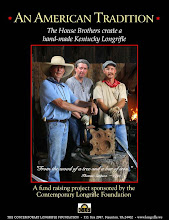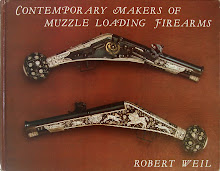In the 18th century bed furniture refers to cloth
objects such as the bolster, bolster case, pillow, pillowcase or pillow beer,
sheet, blanket, rug, quilt, coverlet and counterpane. The bed, bolster and pillow were filled with
feathers, chaff or flock and sewn shut at each end.
Most sheets were either fine or coarse, but could also be tow
or twilled. Fabric was normally bought
at a store and made into sheets by someone in the household. Sheets were center seamed and hemmed at both
ends.
Bed Case
Coarse Linen
82” length x 51 “ wide
3 Panels – 2 panels -
33” wide with 3rd panel 39 1/2” wide
All 3 panels 82” length
Sewn closed on one end and sewn halfway closed on the other
end. The case could be removed, washed and then stuffed with the tick. The weave is not twill or tight enough to
hold feathers. The two examples from Colonial Williamsburg below held straw so it is possible that this one did also. Useable. There are several place where the weave is lose. The
photos show the case folded in half. Bought from a Pennsylvania Antique Textile Dealer.
American (Likely Pennsylvania) Plain Weave/Tabby Linen mattress Tick - Once Straw Filled
Width 54 1/2" Length with Selvage 27 1/4"
c. 1750-1830
Colonial Williamsburg
American (Likely Pennsylvania) Plain Weave/Tabby Linen mattress Tick - Once Straw Filled
Width 54 1/2" Length with Selvage 27 1/4"
c. 1750-1830
Colonial Williamsburg
18th CenturyCoarse Linen Sheet
83” length x 77” wide
2 panels – 38 1/2” wide each
M embroidered in white
Natural with Age Spots
Natural with Age Spots
Age spots, but other wise in good condition for age. Photos shows sheet folded in quarters. Bought from a Pennsylvania Antique Textile Dealer.
18th Century Fine Linen Sheet
85” length x 67” wide
2 panels – 33 1/2” wide each
Bleached White, Age Spots
Bleached White, Age Spots
Very fine stitching and small hem. There are repairs on the
sheet and some worn spots. Bought from a Pennsylvania Antique Textile Dealer. Useable.
This is a nice photo showing the comparison of the different textures of homespun fabric.
Copy and photos by Jan Riser.
















































No comments:
Post a Comment
Note: Only a member of this blog may post a comment.